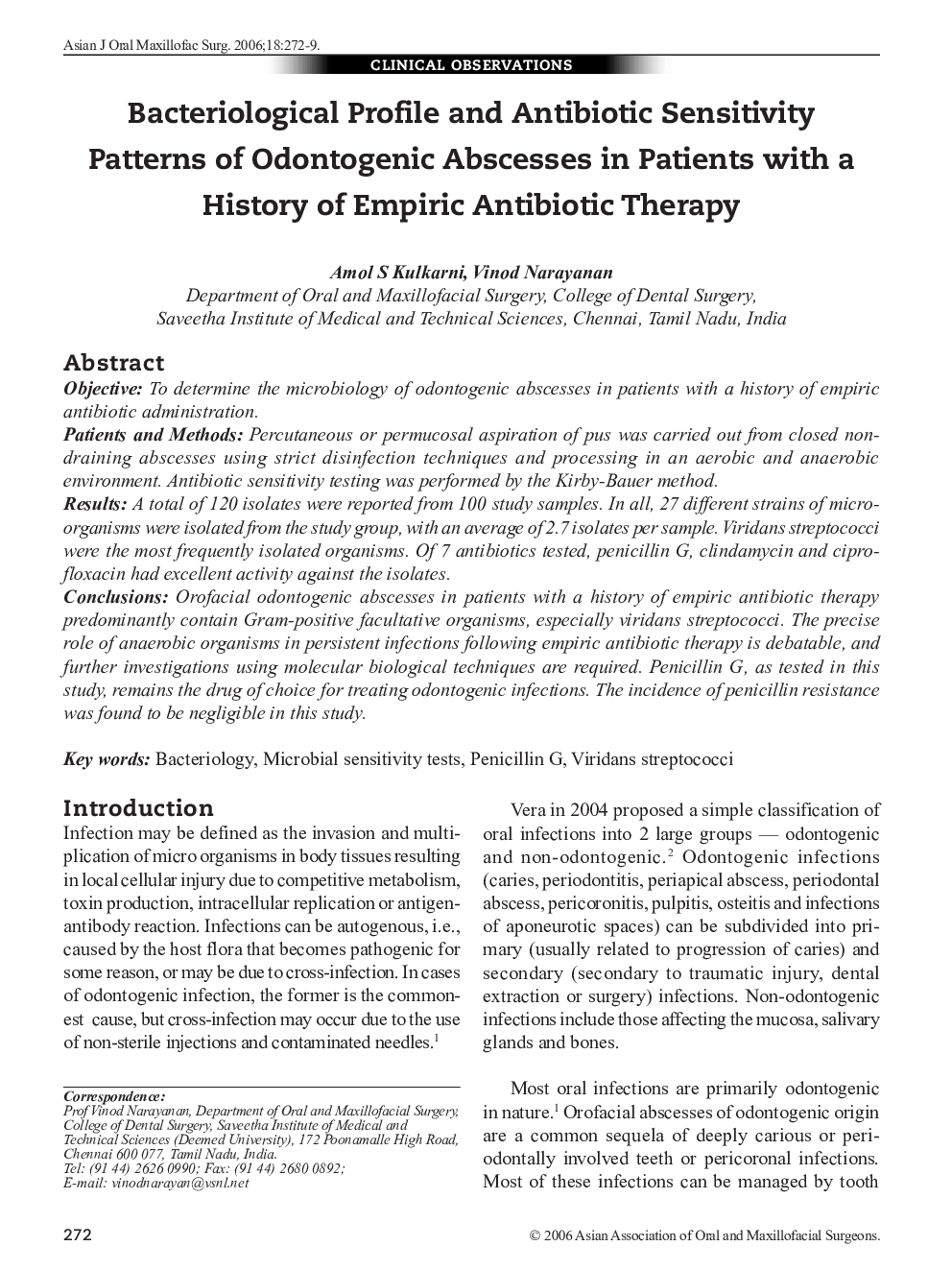| Article ID | Journal | Published Year | Pages | File Type |
|---|---|---|---|---|
| 3122305 | Asian Journal of Oral and Maxillofacial Surgery | 2006 | 8 Pages |
Objective: To determine the microbiology of odontogenic abscesses in patients with a history of empiric antibiotic administration.Patients and Methods: Percutaneous or permucosal aspiration of pus was carried out from closed nondraining abscesses using strict disinfection techniques and processing in an aerobic and anaerobic environment. Antibiotic sensitivity testing was performed by the Kirby-Bauer method.Results: A total of 120 isolates were reported from 100 study samples. In all, 27 different strains of microorganisms were isolated from the study group, with an average of 2.7 isolates per sample. Viridans streptococci were the most frequently isolated organisms. Of 7 antibiotics tested, penicillin G, clindamycin and ciprofoxacin had excellent activity against the isolates.Conclusions: Orofacial odontogenic abscesses in patients with a history of empiric antibiotic therapy predominantly contain Gram positive facultative organisms, especially viridans streptococci. The precise role of anaerobic organisms in persistent infections following empiric antibiotic therapy is debatable, and further investigations using molecular biological techniques are required. Penicillin G, as tested in this study, remains the drug of choice for treating odontogenic infections. The incidence of penicillin resistance was found to be negligible in this study.
